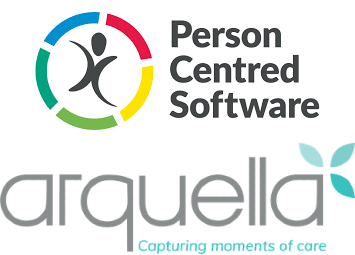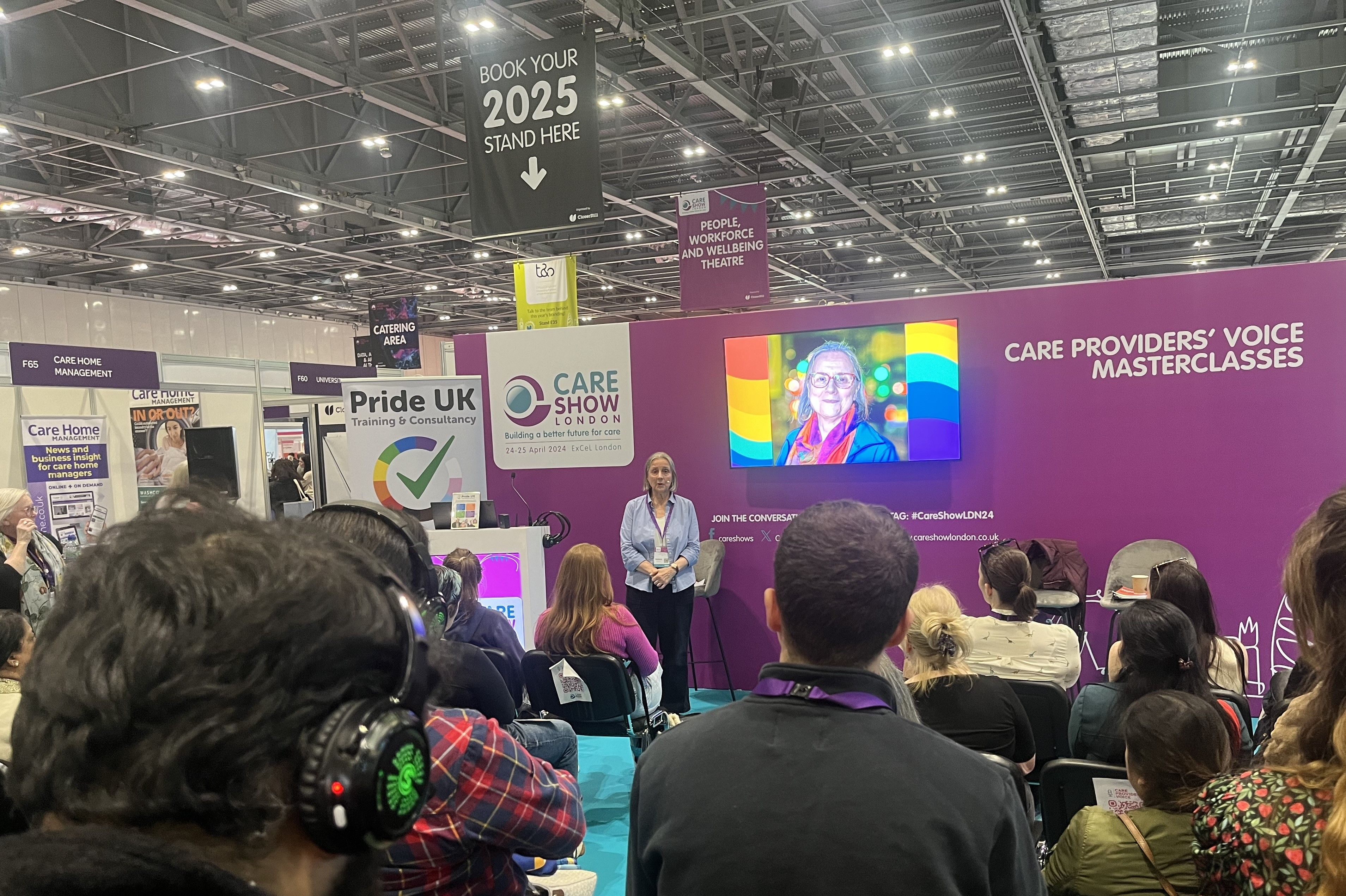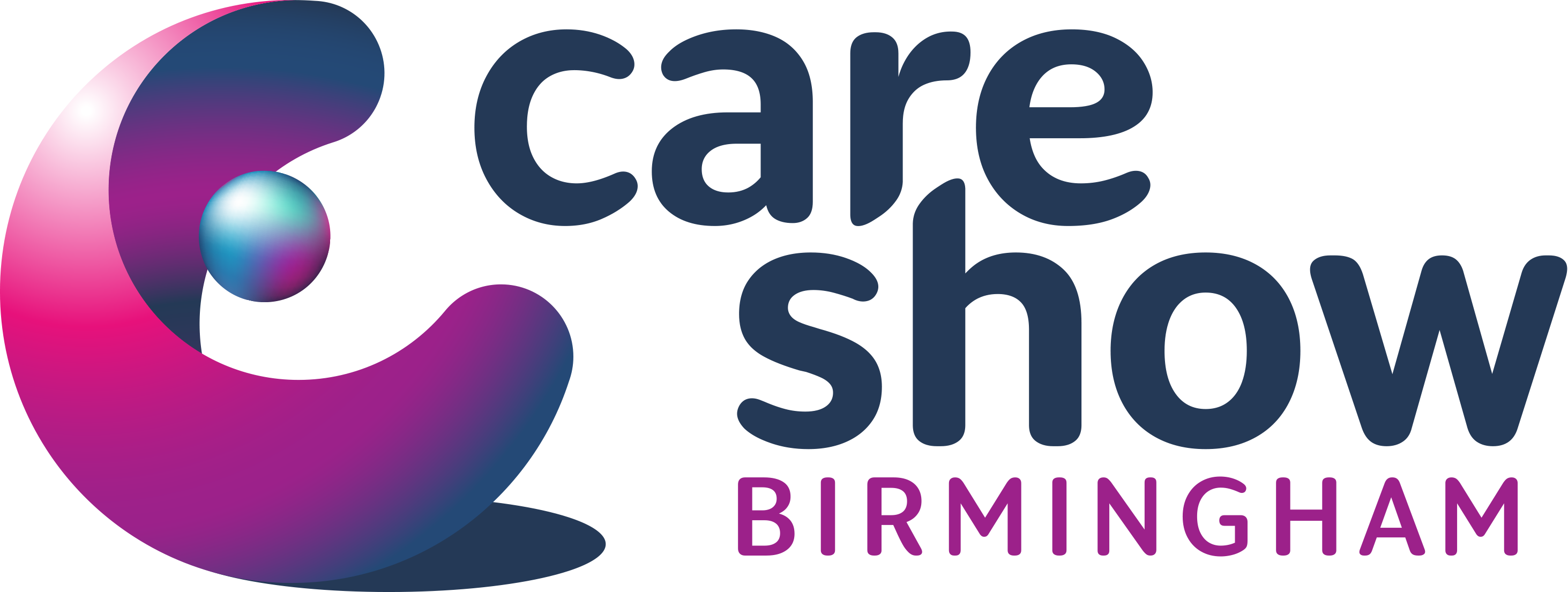Care is for EVERYONE
)
Pride Month in June has always been a month of celebration for the LGBTQ+ community, but in the care sector we often forget that the majority of older LGBTQ+ people seeking care are childless and estranged from family, due to the shame of identifying as LGBTQ+ in earlier decades.
And because family support is low, the support of LGBTQ+ inclusive staff really makes all the difference between a person feeling enabled to be their true selves or, decide to hide away and not share their true identity in their later years. That is why we don’t always talk to you about our lives.
Often it is the smallest of things, like showing interest in a same-sex partnership photo that you notice on the side-table; welcoming our partners and introducing them to other residents or simply ensuring that all care staff are trained to use their day-to-day language in an inclusive way.
It is not that care staff are homophobic, biphobic or transphobic, but more that they are sometimes uncomfortable because of a lack of personal experience working with LGBTQ+ people and genuinely lacking in confidence about saying or doing the wrong thing.

Pride UK are a team of LGBTQ+ health and social care professionals (previously the Pride in Care team) who help care staff build greater confidence in working with LGBTQ+ people by delivering in-house training and webinars, conference presentations - including The Care Show - and providing the national LGBTQ+ inclusion care quality standard: www.prideukqualitystandard.com
We were so happy to present in the Care Providers’ Voice Masterclass Theatre with our session: ‘Confidence to Care’ at the Care Show London in April, focusing on helping care staff engage more effectively with LGBTQ+ people.

We are also delighted to have been invited back to deliver our session: ‘LGBTQ+ Inclusion: Meeting the feedback requirements of the CQC Single Assessment Framework’ at the Care Show Birmingham, 9-10 October. This will give us further opportunity to share some practical tips that can go a long way to improving the quality of feedback from LGBTQ+ domiciliary and residential care clients, their same-sex partners, family and friends, an important EDI focus which is now being given much greater prominence in CQC inspections. "We treat everybody equally," is no longer an acceptable response to questions about LGBTQ+ inclusion in care, CQC now need reliable evidence, including the feedback of LGBTQ+ people to demonstrate that domiciliary and residential care organisations are proactively engaging with LGBTQ+ people and responding to their very different histories and individual needs.
Article written by Jim Glennon, Pride UK

